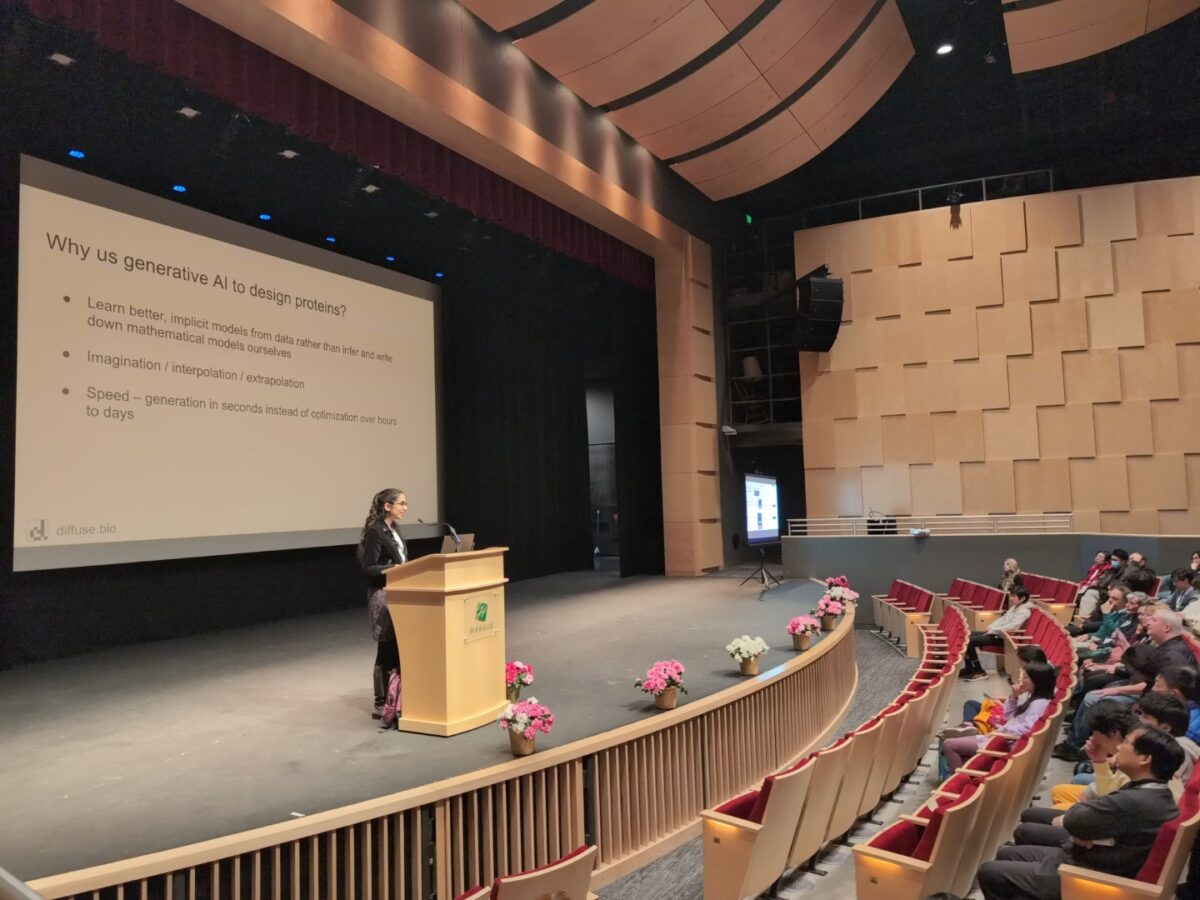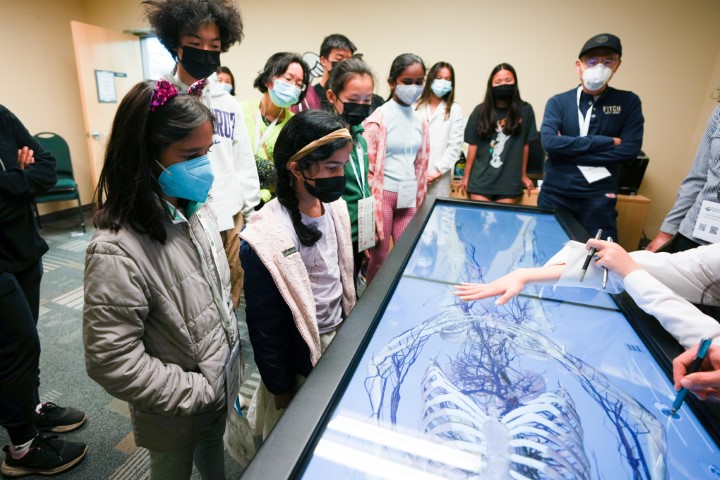More than 800 people attended this year’s Research Symposium, organized by WiSTEM.
WiSTEM
Research Symposium returns to upper school campus
On April 16, the Harker Research Symposium welcomed attendees to the upper school campus for the first time since 2019.

